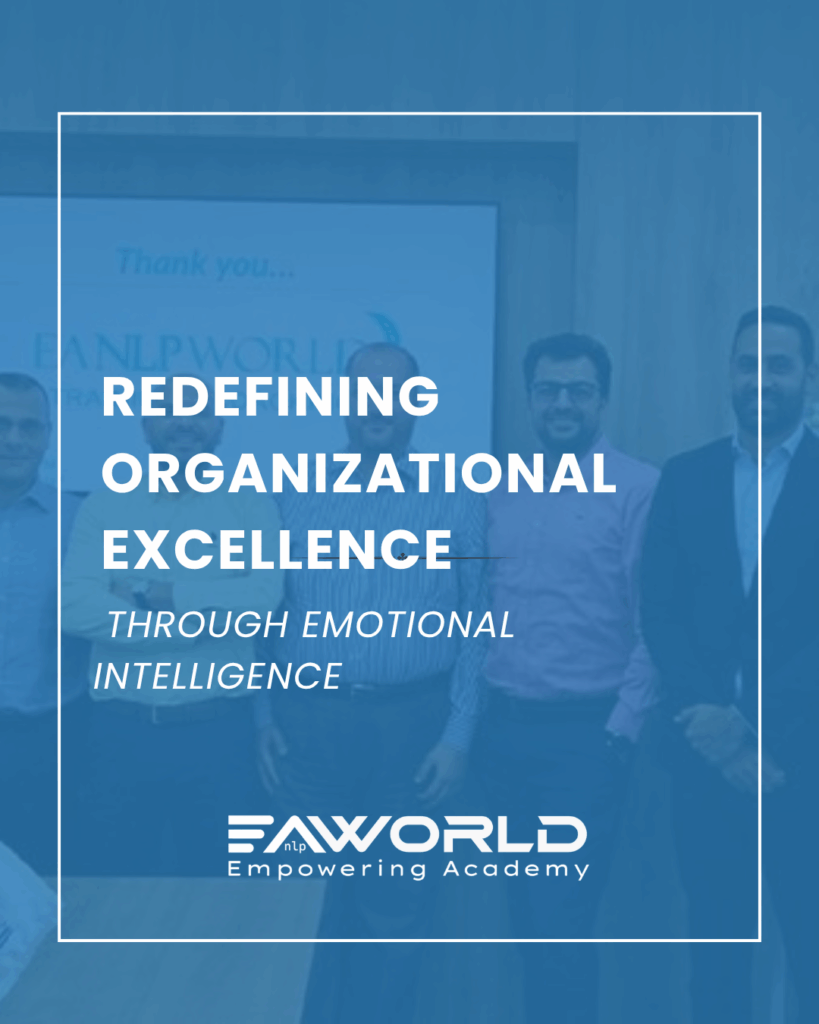
Culture is the invisible force that shapes how people behave, collaborate, and perform within an organization. In high-performing companies, culture is not just a byproduct of success—it is the driver of it. As the workplace becomes increasingly dynamic, the demand for emotionally intelligent organizations is greater than ever. Coaching for emotional intelligence (EQ) offers a transformative pathway to build cultures that are not only high-performing but also deeply human-centered. This article explores how leadership coaching, talent development, and strategic cultural alignment can help businesses build emotionally intelligent workplaces that thrive in complexity and change.
The Foundation: Why Emotional Intelligence Matters in Organizational Culture
Emotional intelligence—the ability to recognize, understand, and manage one’s own emotions and those of others—is a critical skill for both individual and collective success. While technical competencies can get employees in the door, it’s emotional intelligence that keeps them engaged, collaborative, and innovative. Emotionally intelligent organizations are marked by strong communication, empathy, psychological safety, and trust.
As research shows, EQ is more predictive of leadership effectiveness than IQ. When embedded into an organization’s culture through coaching and learning programs, emotional intelligence becomes a strategic asset. It reduces friction, improves decision-making, and fosters resilience during organizational transitions or crisis periods.
Coaching as a Catalyst for Cultural Change
Executive coaching and organizational coaching are not just development tools; they are cultural interventions. Coaching unlocks awareness, rewires mindsets, and enables intentional behavior change across leadership and team levels. By integrating coaching into the DNA of the company, organizations create space for self-reflection, empathy, and authenticity.
Professional coaching interventions enable:
- Adaptive leadership behavior aligned with company values
- Clarity of emotional responses and improved interpersonal dynamics
- Reduced conflict and increased team cohesion
- A feedback-rich, trust-based environment
Coaching for culture involves more than training individuals—it shapes how entire teams communicate, collaborate, and evolve.
Building Emotionally Intelligent Organizations: Key Coaching Pillars
1. Leadership Coaching for Emotional Intelligence
Leadership is the cornerstone of culture. Coaching senior executives and managers in emotional intelligence skills ensures that emotional agility and authenticity are modeled from the top. Leadership coaching develops:
- Self-awareness and self-regulation
- Social awareness and empathy
- Relationship management and influence
As emotionally intelligent leaders emerge, they set a cultural tone that invites openness, encourages learning from failure, and empowers others to lead from their strengths.
2. Coaching for Team Alignment and Trust
Emotionally intelligent teams are not only more productive but also more resilient. Coaching interventions at the team level improve mutual understanding, emotional safety, and shared accountability.
Using behavioral coaching and systemic team coaching, organizations can:
- Foster psychological safety and vulnerability-based trust
- Improve communication in diverse and cross-functional teams
- Align team values with organizational goals
- Establish inclusive collaboration practices
3. Culture-Driven Coaching Strategies
Coaching should not operate in isolation. When aligned with culture transformation initiatives, it reinforces values and ensures sustainable change. Culture coaching integrates:
- Values-based assessments and feedback
- Customized coaching programs by department or business unit
- Culture audits and strategic alignment workshops
- Long-term coaching partnerships with HR and L&D functions
This integration allows organizations to bridge the gap between stated values and lived experience.
Measuring the Impact: KPIs for EQ-Driven Culture Coaching
One of the greatest challenges in culture change is measurement. However, coaching for EQ can be evaluated through several meaningful metrics:
- Increases in employee engagement and psychological safety
- Decreases in attrition and conflict-related HR cases
- Improvements in cross-team collaboration scores
- Higher satisfaction with leadership and communication transparency
Many leading organizations now include emotional intelligence as a key competency in performance reviews and succession planning, a trend that reinforces the strategic relevance of EQ coaching.
Why Emotionally Intelligent Cultures Are the Future
In an era where automation and digital transformation dominate headlines, it is emotional intelligence that defines the human edge. Organizations that coach for culture are not just managing change—they are architecting the future of work. Through professional coaching grounded in EQ, companies can evolve into emotionally intelligent ecosystems where people thrive, collaborate meaningfully, and perform at their highest potential.
Whether you are designing a leadership development pipeline or reimagining your culture strategy, coaching for emotional intelligence is not a trend—it’s a business imperative.
To create emotionally intelligent organizations, start from the inside out. Build your culture on awareness, empathy, and purpose—and use coaching as the engine of transformation.

